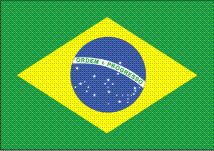Australia
It was in the exercise of the external affairs power that the Commonwealth Parliament validly enacted the Commonwealth’s first piece of human rights legislation, the Racial Discrimination Act 1975 (Cth) (“RDA”). The High Court upheld the RDA as a valid exercise of the power conferred by section 51(29) of the Commonwealth Constitution on the basis that the RDA gives effect to the International Convention on the Elimination of All Forms of Racial Discrimination (“CERD”) which was ratified by Australia on 30 September 197525. The CERD is scheduled to the RDA. The central provision prohibiting discrimination in the RDA is contained in section 9(1). This makes it unlawful for a person to: do any act involving a distinction, exclusion, restriction or preference based on race,
color, descent or national or ethnic origin which has the purpose or effect of nullifying or impairing the
recognition, enjoyment or exercise, on an equal footing, of any human right or fundamental freedom in the political, economic, social, cultural or any other field of public life. If, by reason of, or a provision of, a law of the Commonwealth or of a State or Territory, persons of a particular race,
color or national or ethnic origin do not enjoy a right that is enjoyed by persons of another race,
color or national or ethnic origin, or enjoy a right to a more limited extent than persons of another race,
color or national or ethnic origin, then, notwithstanding anything in that law, persons of the first-mentioned race,
color or national or ethnic origin shall, by force of this section, enjoy that right to the same extent as persons of that other race,
color or national or ethnic origin.
http://www.ddp.unipi.it/dipartimento/seminari/brisbane/Brisbane-Australia.pdf
Brazil
Law 8081 of 9/21/90 adds a new article to Law 7716 of 1/5/89 to establish prison term from 2 to 5 years for the crimes of discrimination or bias by reason of race, color, religion, ethnic or national origin practiced by the mass media communications or by publications of any nature. And specifies the functions of the Judge. Articles 20 and 21 of Law 7716 become articles 21 and 22, respectively.
Law 10803 amends article 149 of Decree-Law 2848 of 7 December 1940, Criminal Code, to impose prison terms for crimes similar to slavery; penalties increase by half if the crime is perpetrated against children or adolescents, or based on prejudice of race, color, ethnicity, religion or origin.
Germany
Incitement of hatred against others is prohibited by Germany's penal code. Section 130 states, "He who attacks the human rights of others in a way that disturbs the public peace by, (1) inciting hatred against segments of the population, (2) calling upon people to take part in violent or arbitrary measures against them, or (3) insulting, intentionally libeling, or slandering them is to be sentenced to three months to five years." This hate violation law is broad in scope. It covers people spreading hate
propaganda, organizing hate, and even libel without an actual violent act. Also, Germany's hate crime law's intent is to prevent unlawful attacks on individuals so that individuals of different race, colors, and creeds can live together in harmony. Also its intent is to create a peaceful environment so that no one will feel their life is under threat.
South Africa
Within South Africa, actions of prejudice are not commonly framed as 'hate crime'. The concept has very limited social and legal currency and there are no alternative labels, i.e. there is no one concept for arranging, exploring or punishing 'prejudice'. In South Africa, the current legal attitude to racially motivated crime fluctuates between the first and second approaches, that is, between having increased penalties for offences in which a racial motivation is established; and
having specifically defined racially-motivated offences. It is not a specific crime category but, if racial motivation emerges as an aggravating factor within a case, it can impact on the length of sentence.
http://www.csvr.org.za/papers/paprctp1.htm#note16
Sweden
Sweden passed a constitutional amendment during 2002 which included sexual orientation among a list of groups protected from being targeted by "unfavorable speech." The law protects persons of all sexual orientations equally: heterosexuals, bisexuals and homosexuals. In practice, it will probably only be used to criminalize verbal attacks on homosexuals and those bisexuals who engage in same-sex behavior.
During 2004-JUN, a Pentecostal pastor was convicted of directing hate speech against homosexuals during a sermon in his church. He was sentenced to one month in jail. Many in the conservative Christian community in North America were alarmed at this development. They feared that a similar threat might materialize against their personal freedom to cite their beliefs that homosexual behavior and homosexual orientation are sinful and immoral.
http://www.religioustolerance.org/hom_hat8.htm
Switzerland
Whoever publicly incites hatred or discrimination against a person or a group of persons on the basis of their race, ethnicity or religion,
or whoever publicly promotes an ideology that systematically disparages or slanders members of a race, ethnic group or religion,
or whoever organizes, supports or participates in a propaganda action with this same goal,
or whoever publicly through word, writing, illustration, gesture, act of violence, or in any other way disparages or discriminates against a person or a group of persons on the basis of their race, ethnicity or religion, in a way that offends their human dignity or, for any one of these reasons, denies, flagrantly whitewashes [gröblich verharmlost] or seeks to justify, genocide or other crimes against humanity,
or whoever withholds, on the basis of race, ethnicity or religion, a service or product from a person or a group of persons that is offered to the public at large,
will be punished by [up to three years] imprisonment or a fine.





